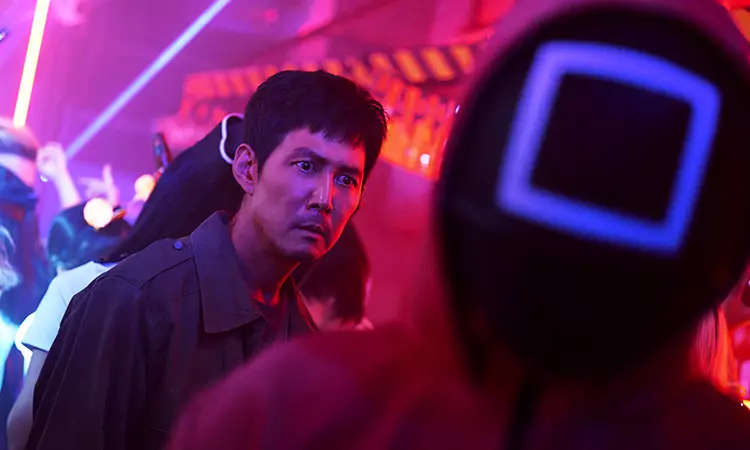The riveting success of “Squid Game” has undeniably marked a significant milestone in the realm of global television. First gaining popularity upon its debut on Netflix, this South Korean survival drama quickly became a cultural phenomenon, captivating audiences with its dark narrative and thought-provoking themes. Its unexpected rise to fame can be attributed to the nuanced storytelling and profound commentary on capitalism and human nature, which led to the show’s creator, Hwang Dong-hyuk, and its talented cast to become household names both in Korea and internationally.
The fervor surrounding the anticipated second season, set to premiere in December, is a testament to the show’s unique ability to resonate with a wide spectrum of viewers. At recent appearances such as the Lucca Comics & Games, key figures including Hwang, Lee Jung-jae, and Wi Ha-jun have propelled our excitement further with glimpses into the forthcoming season, sparking lively discussions concerning plot twists and character arcs that fans have begun to speculate upon.
As fans eagerly await the return of Seong Gi-hun, portrayed by Lee Jung-jae, the narrative promises to delve deeper into the psychological impact of the games on the characters. Gi-hun, now carrying both physical and emotional scars from his previous ordeal, is depicted as a man on a mission to unveil the grim reality of the game, which stands in stark contrast with the skepticism from fellow competitors. This tension is especially pertinent, as society often grapples with the credibility of whistleblowers and the inherent distrust that arises from trauma and betrayal.
Interestingly enough, contrary to the supportive landscape often seen in narratives focused on camaraderie, this season seems to explore the detrimental effects of distrust among characters who were once bound by their shared experiences. As Gi-hun’s resolve strengthens, it will be intriguing to observe how interpersonal dynamics play out, particularly with the resurgence of the enigmatic Front Man, played by Lee Byung-hun. With his hidden agendas still shrouded in mystery, viewers are left to ponder whether he acts as a guardian or a manipulator within the twisted framework of the games.
Adding layers to the discourse surrounding “Squid Game” is the reality TV adaptation inspired by the original series. While some express concern over whether these televised games dilute the serious undertones the original narrative sought to convey, Hwang Dong-hyuk maintains that the essence of his creation remains intact. His candid reflections at Lucca Comics & Games highlight an important distinction; the reality show’s existence does not diminish the storytelling potential of the series itself. Instead, it may serve to broaden the interpretation of themes presented in the acclaimed drama. As Hwang eloquently puts it, the capitalist society we inhabit is mirrored in both entities, but each possesses a different purpose and audience.
This commentary speaks volumes about the nature of modern media consumption. As complex genres intermingle, audiences are presented with diverse lenses through which they can explore shared narratives. The apparent conflict arising from dollar signs versus artistic intention raises pertinent questions concerning the commodification of storytelling. If consumers find value in the reality adaptation and reconcile it with the original’s meaning, is there truly a dilution taking place? The answer likely lies within the viewer’s engagement with the material.
As the second season of “Squid Game” inches closer to release, the excitement is palpable. Fans are left conjecturing over the potential directions the narrative may take while acknowledging the legacy that Hwang Dong-hyuk has crafted in just over a decade. The anticipation of unveiling deeper character arcs and intricate plots is one that transcends simple entertainment; it poses ethical dilemmas and reflects the societal zeitgeist.
Whether “Squid Game” as a series will continue to evolve and challenge viewers’ perspectives with its forthcoming season remains to be seen. Nevertheless, one thing is certain: both the character journeys and broader conversations prompted by this unprecedented show will leave a lasting impact on audiences, ensuring that the legacy of this dark story indeed persists far beyond its initial release.

